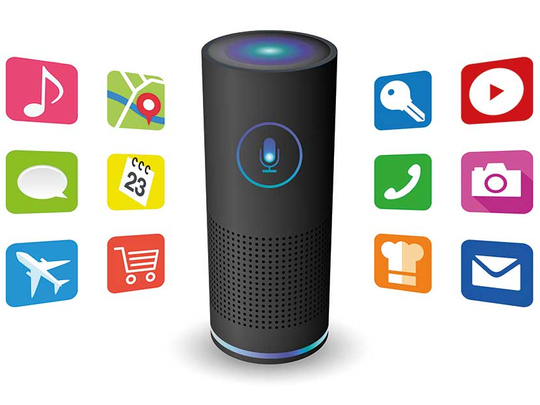
Dubai: Smart speakers such as Amazon Alexa and Google Home are gaining traction in the UAE despite the US tech companies haven’t officially launched it in the region.
Nakul Dogra, a senior research analyst at International Data Corporation, told Gulf News that the majority of smart speakers currently coming into the UAE are grey shipments from other regions, whether that be Amazon Echo devices powered by Alexa or Google Home speakers powered by Goggle Assistant.
As such, he said the intake when compared with other countries like the US and the UK is not that great, but it is certainly picking up at a rapid pace.
The research firm expects consumers in the Middle East and Africa (MEA) to spend well over $300 million on smart home technologies in 2018, and the UAE is expected to be one of the key markets driving the growth of this space.
“Smart speakers primarily serve as a central hub for controlling an array of other allied smart products in the home. These include lights, curtains, and any other smart home appliances, and they can also be used to perform other tasks like setting up timers, playing music, and answering questions.
“The smartphone is also an essential part of the smart home ecosystem, as the majority of controls (e.g., installation of new devices, detailed settings of smart speakers and allied devices) still need to be operated through a primary display device, which is usually a smartphone,” he said.
However, he said that one of the main reasons why smartphones met success was the emergence of app ecosystem. For smart speakers to make inroads into the market, he said that vendors should actively engage and encourage third-party app developers to develop “localised applications” in order to drive the adoption of smart speakers among consumers.
Smart speakers are usually stationary, meaning anyone in the family can use them to control other smart appliances, whereas smartphones typically belong to an individual and may not be available to use.
A Souq.com representative said that there is a growing trend of smart speakers and “we see a major uptake in consumers searching for smart speakers.” In line with that, he said the online marketplace today offers 55 per cent more selection than in 2017 with over 200 products across 20 premium brands available.
“We have seen a remarkable response to speaker category which has been doubling every year and we expect the trend to continue. We are also witnessing a significant shift towards premium brands such as JBL, Harman, Bose, Sonos, Amazon Echo and Google,” he said.
Moreover, he said the trend is expected to further strengthen in 2018 with the launch of the new Apple Homepod and localisation of Amazon Echo.
“ While working with OEM’s we came to understand that a lot of devices would itself have smart capabilities and would be compatible with Amazon Alexa and Google Home,” he said.
The big competition is between Google and Amazon but Apple has entered the bandwagon with its HomePod. Apple counts on Siri to process commands while Amazon relies on Alexa and Google on Assistant.
When asked whether Apple speaker will find success in the UAE, Dogra said it’s hard to say at this point of time, but given the strong base of loyal Apple users that exists in the country, it will certainly generate a lot of interest among consumers.
According to research firm IHS Markit, 39 million smart speakers are forecast to be shipped globally in 2018, up sharply from 27 million units shipped in 2017. More than five billion consumer devices supporting digital assistants will be in use in 2018, with almost three billion more added by 2021.












